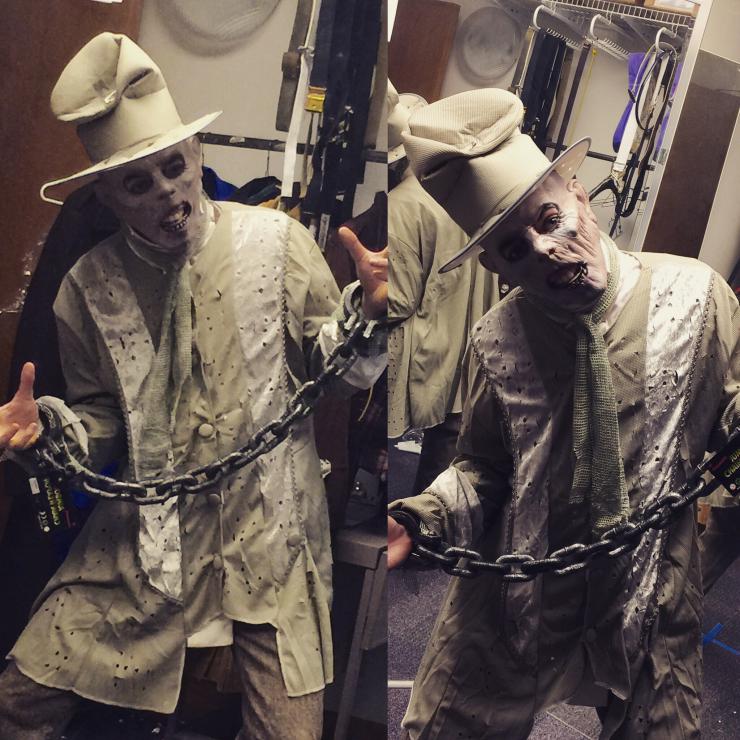Here are a few posts from last week's Greenpage that might be worth your time...
Costumes and Makeup: Designing Temporary Body Modification
HowlRound: Every day we get up and get dressed. We may think for hours, days, and weeks on what to wear. For some of us this process begins with the buying of garments, and for others it is a no-brainer because our likes are clear and our needs are simple. We modify our look with what we wear. It is our armor. We use it to protect ourselves from the weather, to suit our mood, and to shield our psyche from the world. As a costume designer, I know this to be true. I use this process to discover the characters I am designing for the productions for which I am involved. However, how many of us have considered it to be a type of body modification? It is temporary, but it is also modifying. We are visually changing how we are seen.
Historians are criticizing Hamilton, and fans should be thrilled.
www.slate.com: In part thanks to this Q&A between Slate’s Rebecca Onion and Rutgers professor Lyra Monteiro, a conversation is finally brewing about how Hamilton, the brilliant musical phenomenon, approaches history, the factual record, and its real-life subjects. If, like me, you work in theater and spend a lot of time procrastinating on social media, you’ve probably seen many of your friends ranting about small-minded academic quislings fact-checking every minute of the show from their ivory towers.
Orientalism, Whitewashing, and Erasure: Hollywood’s Historic Problem With Asian People
The Mary Sue: Hollywood has no idea what to do with Asian people. And, given the fact that Hollywood often serves as a reflection of contemporary culture, this is a major problem. Aside from casting us as goofy comic relief (Long Duk Dong, really) or evil mystical ninjas (come on, Daredevil season 2), they just don’t know what to do with us. The confusion and ignorance around what we bring to the table sometimes gets so bad that rather than try and find out who we actually are, they’ll overwrite us with white characters, erasing us completely from narratives that inherently belong to one culture or another (looking at you, Ghost in the Shell). Sometimes, to bridge that gap, they’ll even try to use yellowface, which (if you somehow weren’t already aware) is the practice of donning makeup and a really racist accent to look and sound Asian.
Breaking Records at Art+Feminism's Wikipedia Edit-A-Thon
The Creators Project: For it’s third-annual Wikipedia Edit-a-thon, Art+Feminism supported 2,500 participants in 175 events across 6 continents for a record-breaking year of editing and creating pages for women in the arts. Organized in collaboration with the Professional Organization for Women in the Arts (POWarts) and the Museum of Modern Art, the Edit-a-thon was led by Siân Evans of Art Libraries Society of North America’s Women and Art Special Interest Group, Jacqueline Mabey of failed projects, and artist Michael Mandiberg (read: "Meet the Man Printing Wikipedia as a Book").
Yes, Calling Someone a "Techie" Can Be Offensive
OnStage: Sometimes, even with the best intentions, certain terms, labels and names you have for various people can be offensive to them. One term that is commonly used in theatre is to describe the technical crew, technicians, etc as "techies". And while this term is often used with the best intentions, at the end of the day, it's offensive.














